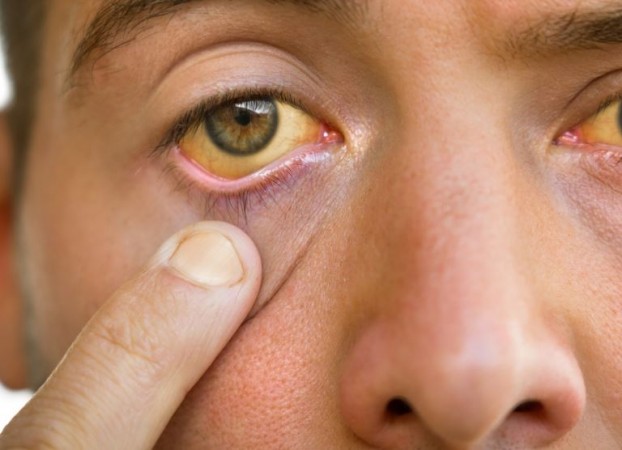
Jaundice, or yellowing of the skin and eyes, is not a disease in itself but a symptom indicating an underlying health issue. It occurs due to an excess of bilirubin, a yellow pigment, in the blood. While it may not always be life-threatening, jaundice can signal serious health conditions that require immediate attention.
Understanding Jaundice
What is Jaundice?
Jaundice is a condition characterized by the yellowing of the skin and the whites of the eyes. This occurs due to the accumulation of bilirubin, a substance produced when the body breaks down red blood cells. Under normal circumstances, the liver processes bilirubin and removes it from the body. However, when the liver is unable to perform this function properly, bilirubin builds up, causing jaundice.
Causes of Jaundice
Hepatitis Viruses:
Hepatitis A and E: These are typically transmitted through contaminated food and water. They usually cause mild to moderate symptoms and can be resolved within a few weeks.
Hepatitis B and C: These are more severe and can lead to chronic liver disease. Hepatitis B is transmitted through blood and bodily fluids, while Hepatitis C is commonly spread through contaminated blood. Both types can lead to long-term liver damage and potentially be fatal if untreated.
Gallbladder Stones:
Gallstones that move into the bile ducts can obstruct bile flow, leading to jaundice. This blockage can result in severe complications if not addressed promptly.
Cancer:
Gallbladder Cancer: Tumors in the gallbladder can block bile ducts, leading to jaundice.
Pancreatic Cancer: Cancer in the pancreas can also obstruct bile ducts, causing a similar effect.
Other Causes:
Infections: Certain infections can affect liver function and cause jaundice.
Medications: Some drugs can impair liver function, leading to jaundice as a side effect.
Recognizing Symptoms of Jaundice
Symptoms of jaundice include:
Yellowing of the Skin and Eyes: This is the most noticeable sign.
Dark Urine: The urine may appear darker than usual, often resembling tea or cola.
Pale Stools: The stools may become light-colored or clay-colored.
Itching: The buildup of bilirubin in the skin can cause itching.
Nausea and Vomiting: These symptoms can accompany jaundice and may indicate a more serious condition.
Fatigue and Weakness: Persistent tiredness and lack of energy are common in jaundice.
How to Address Jaundice
1. Seek Medical Attention
If you notice symptoms of jaundice, it's crucial to consult a healthcare professional promptly. Early diagnosis and treatment are key to managing the underlying cause effectively.
2. Diagnostic Tests
Your doctor may perform blood tests, liver function tests, imaging studies (such as ultrasound or CT scan), and possibly a liver biopsy to determine the cause of jaundice.
3. Treatment Options
Hepatitis: Treatment depends on the type of hepatitis. For viral hepatitis, antiviral medications may be prescribed. Hepatitis A and E usually resolve on their own, while Hepatitis B and C may require long-term treatment.
Gallbladder Stones: Treatment may involve medications to dissolve the stones or surgical procedures to remove them.
Cancer: Treatment depends on the type and stage of cancer and may include surgery, chemotherapy, or radiation therapy.
4. Prevention and Lifestyle Changes
Hygiene: Practice good hygiene, such as washing hands and consuming clean water and food, to prevent hepatitis A and E.
Safe Practices: Avoid sharing needles and ensure safe sex practices to reduce the risk of hepatitis B and C.
Regular Check-ups: Routine medical check-ups can help detect liver issues early.
Jaundice is a significant health indicator that should not be ignored. While it can be a sign of relatively benign conditions, it may also signal serious health issues that require immediate medical attention. By understanding the symptoms, causes, and treatment options, you can take proactive steps to manage your health and avoid potential complications. If you experience any symptoms of jaundice, consult a healthcare professional without delay to ensure appropriate diagnosis and treatment.
6 Quick and Healthy Breakfast Ideas for a Busy Morning
National Milk Chocolate Day – July 28! Indulge in These Irresistible Milk Chocolates
Israel Orders Evacuation of Humanitarian Zone in Gaza